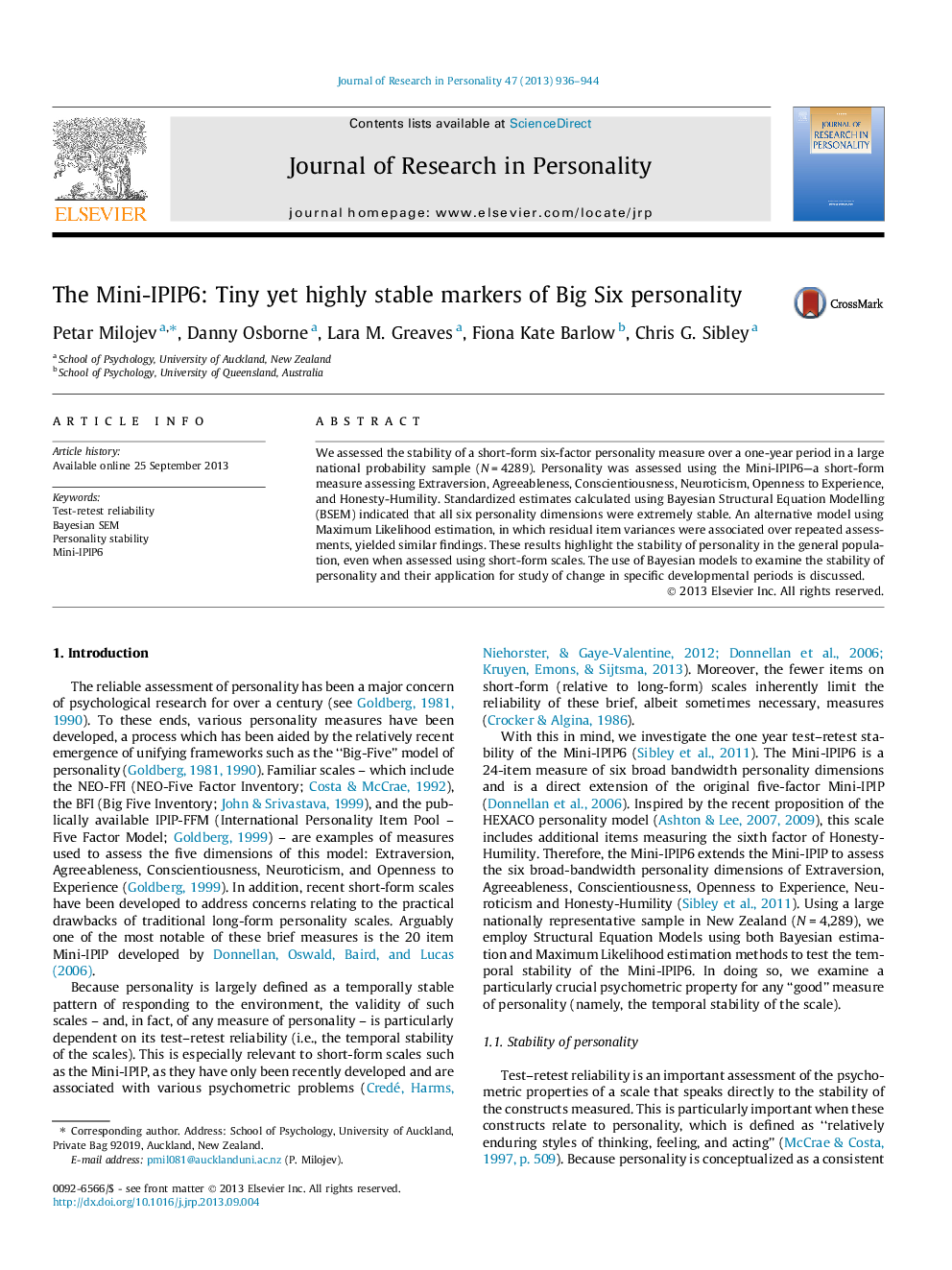| کد مقاله | کد نشریه | سال انتشار | مقاله انگلیسی | نسخه تمام متن |
|---|---|---|---|---|
| 951385 | 927228 | 2013 | 9 صفحه PDF | دانلود رایگان |

• Stability of personality over a one-year period tested in a national probability sample.
• Test–retest reliability of Mini-IPIP6, a short-form six-factor personality measure assessed.
• Bayesian Structural Equation modelling (BSEM) advanced as framework for stability tests.
• High stability estimates (standardised estimates over .90) observed for six subscales.
• Highlights stability of personality in the general population even using short form measures.
We assessed the stability of a short-form six-factor personality measure over a one-year period in a large national probability sample (N = 4289). Personality was assessed using the Mini-IPIP6—a short-form measure assessing Extraversion, Agreeableness, Conscientiousness, Neuroticism, Openness to Experience, and Honesty-Humility. Standardized estimates calculated using Bayesian Structural Equation Modelling (BSEM) indicated that all six personality dimensions were extremely stable. An alternative model using Maximum Likelihood estimation, in which residual item variances were associated over repeated assessments, yielded similar findings. These results highlight the stability of personality in the general population, even when assessed using short-form scales. The use of Bayesian models to examine the stability of personality and their application for study of change in specific developmental periods is discussed.
Journal: Journal of Research in Personality - Volume 47, Issue 6, December 2013, Pages 936–944